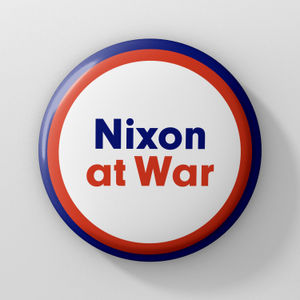S3 Ep 7 - Tangled Web

S3 Ep 7 - Tangled Web
Description
In the fall of 1971, Richard Nixon had reason to be optimistic. The long sought China Summit had just been announced, for the following year, to great (and deserved) acclaim. Vietnam, to be sure, remained an issue, but the continuing troop withdrawal had reduced its political drag at home. With his re-election campaign now looming, the polls showed him well out in front of the presumed Democratic front-runners.
But all this good news had little effect on Nixon’s deep-rooted obsession with a growing list of real and perceived adversaries at home. And so, even as the war in Vietnam slowly abated, the war at home only escalated and expanded, against liberals, anti-war activists, Jews, East Coast elites – anyone perceived, however remotely, as a threat to his presidency. “Lashing out was Nixon’s nature,” Jack Farrell tells Kurt Andersen. “His actions were reflexive, heedless of the peril” which lay ahead, and which would ultimately drive him from office.
